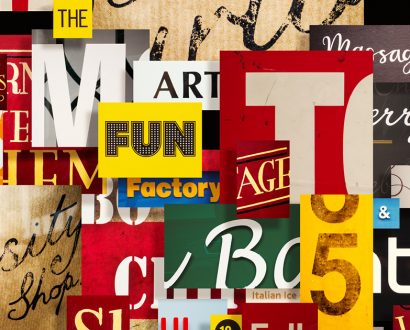There’s this pressure baked into leadership to always know what to do. To have the answers. To hold the line. But the longer I do this work, the clearer it becomes – what makes a leader worth following isn’t certainty. It’s how they lead through uncertainty.
That’s why Stoicism has never felt more relevant, not as a buzzword or some ancient philosophy we quote when things go wrong, but as a mindset, a disciplined, grounded way of leading that doesn’t just survive the chaos but knows how to grow through it.
One of the core Stoic principles I come back to daily is this: control what you can, let go of what you can’t.
It sounds clean. But life rarely is.
What it really means to let go
Letting go of what’s outside our control doesn’t mean disengaging. It doesn’t mean we sit back or shrug. It means we stop wasting our energy chasing outcomes that don’t matter and focus on the ones that do. It means we stop shaking our fists at the sky that just opened up and unleashed a storm, and start asking: Now what?
That’s where the mindset of amor fati comes in. It translates to love of fate. Not in some forced, toxic positivity kind of way, but in the honest decision to use what shows up. Even if it wasn’t what we asked for. Even if it’s painful. Even if it’s heavy.
Epictetus said, “Bring me whatever you wish, and I’ll turn it into something good.”

It’s leadership that doesn’t wait for perfect conditions. It meets reality head-on and works with what’s here.
That’s not passive acceptance. That’s active engagement. It’s leadership that doesn’t wait for perfect conditions. It meets reality head-on and works with what’s here.
It’s the opposite of just bouncing back. It’s what I call going beyond resilient, not just recovering from the hit, but getting stronger because of it.
Marcus Aurelius wrote, “The fencer’s weapon is picked up and put down again. The boxer is part of him. All he has to do is clench his fist.”
Leading is a lifestyle
Leadership – real leadership – isn’t something you pick up when things get tough and put down when they ease up. It becomes part of you. Like the boxer’s fist, it’s always there. And when the moment calls for it, you know what to do.
That’s amor fati in action. And that’s the handle that holds.
Of course, none of this works if you don’t know what matters.

Agility without direction is chaos. Discipline without reflection is fragility.
Stoicism doesn’t say, “Stay the course no matter what.” And it doesn’t say, “Change direction every time it gets hard.” It asks something harder: Know what outcome actually matters. Know what’s worth staying the course for. And only then do you earn the right to adapt without drifting or hold firm without becoming rigid.
Agility without direction is chaos. Discipline without reflection is fragility.
Strengthen your leadership reflex
That’s where I rely on something I call the leadership reflex – the ability to respond to the unexpected without spiraling or shutting down. It’s not instinct; it’s built through reflection and repetition. And the willingness to ask better questions in the moment: What’s really blocking me here? What’s still in my control? Is there an ally, idea or adjustment hidden inside this setback?
Because the truth is, most obstacles aren’t just problems. They’re packed with potential if you’re willing to stay present long enough to see it.

That’s where I rely on something I call the leadership reflex – the ability to respond to the unexpected without spiraling or shutting down.
The leadership reflex also includes something too often skipped: debriefing. Looking back, not just to assess the outcome, but to evaluate how you showed up, what you missed and what you might do differently next time. Reflection is where composure is sharpened. It’s what strengthens your ability to lead under pressure, not just once, but again and again.
The Roman Emperor Marcus Aurelius wrote in his journal, “You have power over your mind, not outside events. Realize this, and you will find strength.”
That strength doesn’t come from brute force. It comes from ownership, owning your actions, owning your integrity and owning the choice to show up with intention even when none of the options are ideal.
Every situation gives us two handles – one by which it can be carried and one by which it cannot. Most people reach for the one shaped by urgency, blame or fear. But the one that holds? That’s the one forged from clarity, confidence and character.
And that’s what Stoicism helps you build.
Stoicism is showing up
Through the daily practice of its core virtues – wisdom, courage, justice and temperance – leaders become the kind of people others want to follow in a storm.
The leaders who live this philosophy don’t just perform well when things are calm. They’re the ones people trust when things fall apart because they’ve built the ability to adapt without unraveling. To stay the course without getting stuck. To lead without losing themselves in the process.
That’s what Stoicism offers. Not a quick fix, not a script, but a way to keep showing up with integrity when things fall apart.
So when it does, you are ready to choose the handle that holds.







